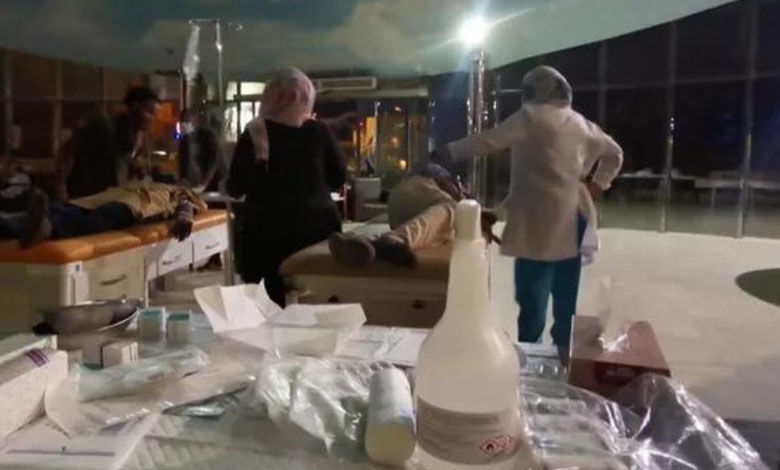Social media is Sudan’s way for doctors to treat patients after the collapse of the health system

Sudanese doctors use social media to reach patients. Hospitals and health facilities are struggling to function or are completely shut down in the violence, with volunteers setting up 24-hour helplines on messaging platforms including WhatsApp, staffed by hundreds of doctors and specialists.
The health system collapses
Last week, at least four people, including a child, were killed in an airstrike outside East Nile Hospital in northern Khartoum, while Médecins Sans Frontières reported that El Geneina Teaching Hospital, in West Darfur, was looted on 28 April, doctors in the country reported death threats, and on Monday two volunteers who were working to reopen a hospital in Bahri were released after being held by the army for several days.
“The number of victims of non-violence – patients without access to health facilities, good care or medicines – is increasing,” said Dr. Khalid Sheikh Ahmadana, MSF’s medical coordinator in Khartoum.
“The situation is dire for those with chronic diseases and newborns, it is very difficult for patients with kidney failure who need dialysis, those with heart disease, cancer, hemophilia as well as newborns who need obstetric and gynecological care,” he said.
Paramedics and volunteer midwives are working to reach patients via WhatsApp: “They are trying to connect women with a midwife in the area so they can give birth at home,” Sheik Ahmadan said. But we don’t know if they have a full medical supply to deliver safe and clean deliveries.”
Even before the war, Sudan’s maternal mortality rate was high, with UN data putting the number of maternal deaths at 295 per 100,000 live births, and doctors in Sudan and abroad responded to the crisis by providing free 24/7 helplines available to anyone in the country in need of health advice, the UK paper said.
Hotlines
According to the Society, the hotline includes 136 doctors from more than 36 specialties and has provided consultations to hundreds of people. The Association hopes to open a separate mental health hotline, run by psychologists and psychiatrists.
“People call for all kinds of problems, from skin diseases to gynecology, when someone calls, they first talk to the doctor who makes the triage calls, then they are referred to a specialist,” said Amir Zain, a Sudanese psychiatrist based in Doha who works on the helpline. We rotate in sorting shifts.”
“Sometimes you have to tell the person that they need to go to the hospital, instruct them to open an escort. The Sudanese Doctors Association is providing updates on open hospitals, but that is changing a lot.”
The British newspaper noted that the lack of drugs or information about open pharmacies is a major challenge: “Many people with pre-existing mental health conditions are reaching out to ask if they should increase or change their doses.”
Many people were showing signs of early shock, Zain said. “I offer them tips on relaxation techniques and try to verify their feelings.












